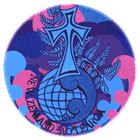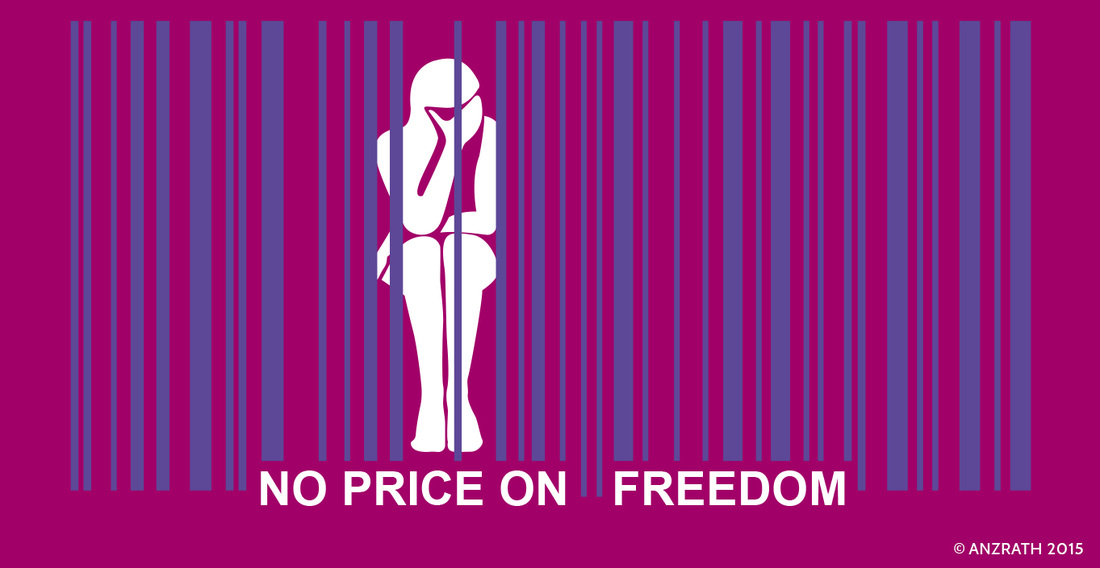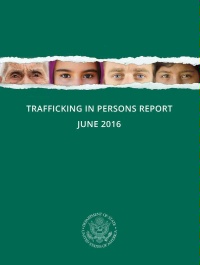|
Sisters of Mercy in New Zealand work for the dignity and empowerment of women especially those who are margainalised and at risk. Their current Chapter statement reflects the focus of the Sisters to keep hope alive in our world today, and victims of human trafficking are an identified group in need of hope.
 Knowledge of the impact of human trafficking on victims increased in recent years. The pain and suffering of trafficked women, children and men touched the heart of the Sisters of Mercy Aotearoa New Zealand. It became a ministry outreach with a vision to contribute to the eradication of human trafficking. Knowledge of the impact of human trafficking on victims increased in recent years. The pain and suffering of trafficked women, children and men touched the heart of the Sisters of Mercy Aotearoa New Zealand. It became a ministry outreach with a vision to contribute to the eradication of human trafficking.
Awareness Raising
This outreach encourages Sisters to be aware and learn more about human trafficking. At first it was thought that it belonged to places other than their own country, but in raising their own awareness the Sisters are discovering that human trafficking is well embeded in New Zealand. Individual Sisters are working in their own localities alongside women who have come into Aotearoa New Zealand supposedly for a specific work but have ended up in very different circumstances. Resources in the form of articles and references for websites are published in their Mercy newsletters. It is becoming increasingly evident that Sisters speak out against human trafficking and to work as advocates for those who find themselves in this form of slavery.
Awareness and Youth
Mercy Global Action (MGA) contact person on Human Trafficking engages with related issues in New Zealand. Within the educational context video clips, prezi presentations https://sites.google.com/a/carmel.school.nz/human-trafficking/ , films and other resources showing the pervasiveness of human trafficking and different forms of slavery, are used. While there are many resources on human trafficking on the internet, this site by the Sisters, aims to provide resources particularly for secondary school teachers in Catholic schools New Zealand who are raising awareness of the issue with their students.
One video, Journey to Freedom, from the UN Global Initiative to fight Trafficking, had a significant impact on young people. It highlights parallels between US slave trade and present-day human trafficking
Another awareness raising activity was to screen the movie Trade of Innocents to public audiences throughout the Mercy schools in New Zealand. It tells the story of a couple, grieving the death of their daughter who set out to rescue young girls sold into the sex slave trade. The film helps people open their eyes and their hearts, and inspires them to become part of the solution. Since the film was not released in NZ the Sisters obtained the rights to show it. The money raised went to the organisation End Child Prostitution and Trafficking - ECPAT-NZ which is raising funds to commission a survey on underage prostitution in New Zealand
Using new technology Year 12 students at Carmel College expanded their student awareness of human trafficking through a video link that resulted from a chance meeting at an Australian Secondary Schools Conference. Sister Anna Nicholls and a Carmel College student made contact with the coordinator of Young Mercy Justice Tree in Adelaide, Maddie Kelly. Having kept in touch they learned that Maddie, who was planning to go on an immersion experience in Mumbai, India, and was invited to video link with Year 12 students . Maddie was experiencing the true face of human trafficking there and through the video link conveyed life for the real victims of HT, which helped to bring to reality the issue of HT for year 12 students. Consequently, many students went on to choose the topic of human trafficking as their social justice assessment, utilising reports on actions to eliminate human trafficking by the Mercy family around the world. A hidden ripple of the effect of Mercy Global Action!
Research on the biblical Story of Ruth (Ruth 1:4), identifying Ruth as a potential victim of human trafficking was undertaken by one of the Sisters. Ruth was a Moabite, who married a migrant who came to her country to escape famine. She later became a migrant herself, escaping famine in Moab and moved on to ‘Israel’. As an alien and a widow the Israelite Law gave her gleaning rights. Her mother-in-law, Naomi, sent Ruth to Boaz, where she found herself in a possible exploitive situation. Exploited like Ruth, potential victims of trafficking in New Zealand maybe decieved into believing they are coming for a job where they will make more money than they can at home. The Sisters are looking at ways to turn this reflection on the story of Ruth into a musical so that the message about the horrors of human trafficking can become more widespread.
 Networking Networking
The recently formed Aotearoa New Zealand Religious against Trafficking in Humans - ANZRATH- has representatives from Sisters of Mercy Aotearoa New Zealand and supports its work with other Sisters, brothers and lay people. Some Mercy Sisters are part of the local groups of Religious in Auckland and Wellington that meet regularly to seek ways to raise awareness.
ANZRATH's Aims
1. To focus on raising awareness of and eliminating human trafficking and slavery
2. To seek justice for those in need and strive to be a voice for those that cannot speak up themselves at national and international levels 3. To developing various ways to respond and support victims of human trafficking.
ANZRATH’s website contributes to creating awareness. “We are not associated with any government and strive to be an honest, open, un-restricted voice for those who cannot speak up themselves”
Mercy Sisters work in collaboration with the Salvation Army, a global organisation very active in New Zealand to bring an end to human trafficking and Sisters attend National Conferences on Human Trafficking hosted by them. Mercy Sisters advocate for the rights of trafficked men on the many fishing boats in New Zealand waters and have contributed to their advocacy work by signing related cards and sending letters to members of Parliament.
For Mercy Sisters in Aotearoa New Zealand, trafficking is a pressing issue. As one sister expressed it: “Catherine McAuley was a woman of the gospel, and she heard the call of Jesus to help those in need. There are so many people today who are being trafficked and kept in slavery, who need the touch of Mercy. A huge number of these are women and children, who were the special focus of Catherine’s concern.” The Sisters are urged to pray for the victims of human trafficking, and for all those in inhuman and coersive situations as well as those who perpetuate these terrible deeds.
The Sisters, Associates and partners- in- Ministry and their engagement with eradicating human trafficking issues will make a difference to many who are enslaved today.
 Trafficking in Persons (TIP) Report 2016 Trafficking in Persons (TIP) Report 2016
The Trafficking in Persons Report, or TIP Report, is an annual report issued by the U.S. State Department's Office to Monitor and Combat Trafficking in Persons. It ranks governments based on US research of their efforts to acknowledge and combat human trafficking.
In the TIP Report, the Department of State places each country onto one of three tiers based on the extent of their governments’ efforts to comply with the “minimum standards for the elimination of trafficking” found in Section 108 of the TVPA.
View the TIP Report 2016 for New Zealand (Tier 1)
|


 Networking
Networking
